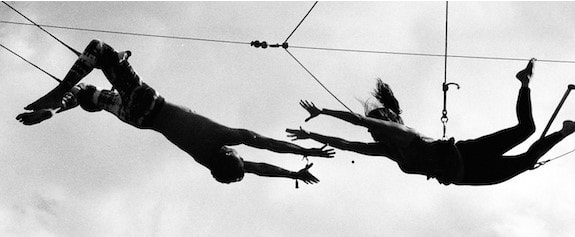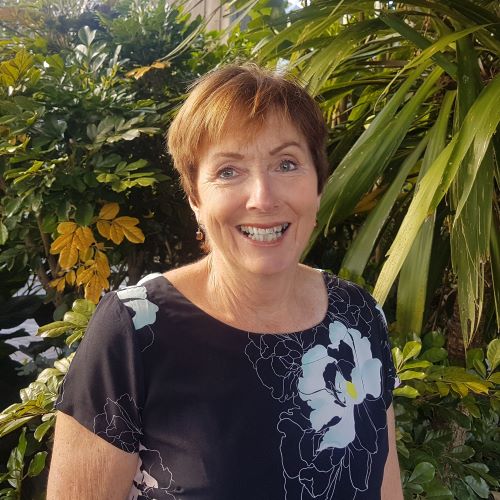“Mutual trust is the key to the success of everything
we try to do together”
– Parker J. Palmer
Where people respect and care for each other, both personally and professionally.
Where they trust each other to do their jobs well and with integrity.
Where they feel safe to speak truthfully and know they will be heard with an open mind.
Where they have permission to make mistakes and learn from them.
Where people keep their word. They do what they say they’re going to do.
Where people are courageous. They don’t avoid difficult conversations and issues.
Where trustworthy relationships with all stakeholders are a top priority.
Imagine the possibilities.
For growth, achievement, enjoyment and satisfaction.
For personal wellbeing and success.
For corporate wellbeing and success.
Imagine how quickly we could get things done.
How much more readily we could deal with conflict and change.
How creativity might flourish.
Imagine the positive impact on the triple bottom line.
I get excited when I imagine organizations like this. Trust is the foundation for doing good work together. This is the kind of place I want to be part of. Doesn’t everybody?
So why isn’t the need for a high-trust culture top of most organizational agendas? Could it be that trust struggles to get a foothold amongst the competition and ladder climbing common to most corporate cultures today?
Perhaps it’s because it is fear that prevails in these cultures, not trust, which means people are more motivated to keep their heads below the parapet. And they don’t have each other’s backs because they’re too busy watching their own. In these places creativity is likely to be stifled, decision-making to be risky and tortuous, and stress levels high. The people who thrive will be the politically savvy ones. The ones who have worked out that it’s important to cc as many people as possible into emailed instructions to ensure they spread the net of responsibility for decisions they’ve made. The ones who schedule their emails to go out at 10.30pm as evidence of their long working hours and dedication to the job.
Trust? I don’t think so. In these kinds of places, trust doesn’t have a look-in.
The problem with the traditional approach to leadership is that it’s based on a need for power and control, which is achieved through the dynamics of hierarchy, the setting of objective, measurable outcomes and a reporting regime of hard data as proof of achievement. There’s no place here for uncertainty or ‘beginner’s mind’ or wishy-washy concepts like trust.
And then there’s the hectic pace and demands of our work lives today that keep our attention scattered on the many outward tasks to be achieved. Multi-tasking becomes our second nature and “I’m too busy” our common catchphrase. Under these conditions it’s difficult to justify putting time aside for introspection and personal growth.
But trust comes first in the Rebel’s Guide to Leadership. True leadership can’t be faked. It can’t be plastered on to a shaky personal foundation. True leadership comes from within, so we must begin with ourselves, with inner work and self-reflection and a commitment to understanding what makes us tick. I’m talking about our deepest values and motivations. Our strengths and our limits. Our hopes and our fears. Our light and our shadow. Yes, it’s a recurring theme in the Rebel’s Guide, but this is the vital groundwork. How can we trust others if we don’t fully know and trust ourselves?
When we have a deep trust in ourselves, this flows naturally into our outer lives. It’s mirrored in the actions we take, in our choices, responses and relationships, in our leadership. It gives us the courage to show up with authenticity and integrity. The courage to extend trust to others, to loosen the shackles of fear that keep us quietly suspicious of others’ motives. Can I really trust this person? is a question we often ask ourselves of another. When we offer trust to others, we’re more likely to receive trust in return. In this way we grow trustworthy relationships in which people flourish, as does creativity, collaboration and the conditions for positive change.
Building trust doesn’t happen overnight though. It emerges as a result of our ongoing daily interactions with one another. Trust builds up, and can be knocked down, just like the balance in a bank account. When we are authentic with each other, when we keep our word, when we acknowledge that we’re all human, that we’re not perfect, that we don’t know all the answers. When we allow our personal lives to become part of our professional lives. Many workplace cultures require people to leave their personal lives at the door. Then we wonder why people are disengaged at work and attrition levels so high (Gallup).
- Is there a part of yourself that you leave outside your work life?
So how do we create the conditions for trust to grow? Trusting one another doesn’t mean we have to be best friends. However, it does mean we need to care for and respect each other and our differences.
- Put aside hierarchy and power dynamics, show up as human and create the conditions for others to do so. Ask for help when needed, be prepared to show vulnerability.
- An effective way of disrupting traditional power dynamics is to establish group guidelines for how you want to work together. For example, in my work as a facilitator and organizational consultant, I use Courage & Renewal Circle of Trust® guidelines known as touchstones. These touchstones create the boundary markers for trustworthy space in which people can show up with authenticity and integrity and engage in meaningful, open-hearted conversation.
- Let go of perfection and the need for certainty, the need to know all the answers.
- Welcome diversity, creativity and curiosity.
- Practise and encourage deep listening. Welcome others’ perspectives.
- Ask generous, open questions that invite exploration, enquiry and authenticity.
- Foster community, collaboration and shared leadership.
- Model reflective practice. Combine personal and professional development. Develop and encourage mindfulness practices.
(a brief version)
- Give and receive welcome.
- Be present as fully as possible.
- Extend invitation, not demand.
- Speak your truth in ways that respect other people’s truth.
- No fixing, saving, advising, or correcting each other.
- When the going gets rough, turn to wonder.
- Practise asking open, honest questions.
- Attend to your own inner teacher.
- Trust and learn from the silence.
- Commit to and maintain confidentiality.
- Know that it is possible for the seeds planted here to keep growing in the days ahead.
- Bring someone to mind who you admire as trustworthy? What makes them so?
- What are the hallmarks of your trustworthy relationships?
“As we start to really get to know others,
as we begin to listen to each other’s stories,
things begin to change.
We begin the movement
from exclusion to inclusion,
from fear to trust,
from closedness to openness,
from judgment and prejudice
to forgiveness and understanding.
It is a movement of the heart.”
– Jean Vanier
An excerpt from The Rebel's Guide to Leadership


 RSS Feed
RSS Feed